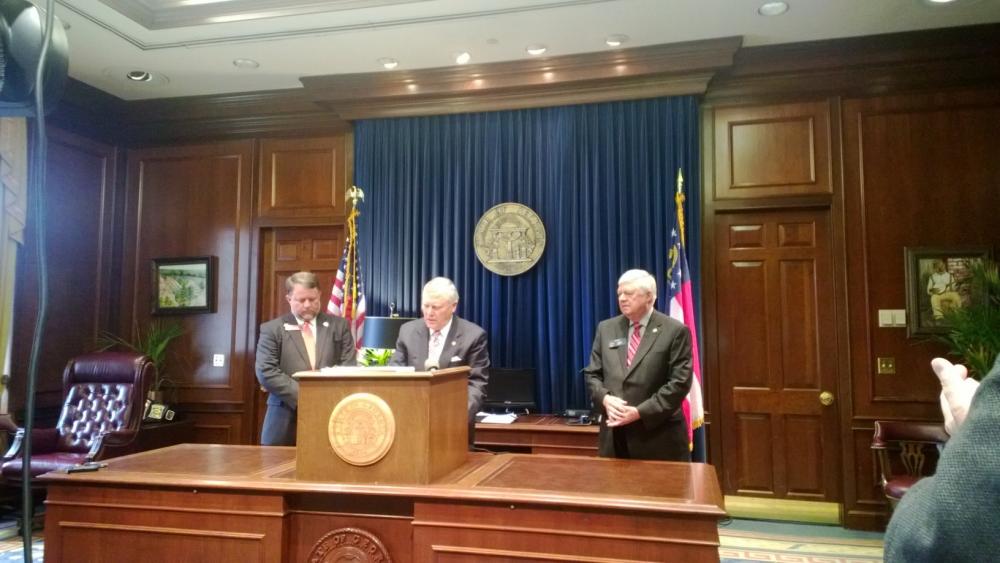
Section Branding
Header Content
One Law, Two Interpretations
Primary Content

Gov. Nathan Deal signed a bill earlier this month regarding how the state allocates funds to clean up tire dumps and hazardous waste sites. But he has no intention of abiding by parts of the law he signed.
The law renews the Hazardous Waste Trust fund. And it will ensure that if the state doesn’t use the money in two funds for their stated purposes, the legislature can reduce the fees accordingly.
Georgians pay fees to fund cleanups of toxic sites and other unhealthy geographic eyesores. For example, the $1 people pay when buying new tires to clean up tire dumps.
Historically, Georgia has collected the money but not always allocated funds to their stated purposes. And critics say that’s fraud.
But Brian Robinson, Governor Deal’s spokesman, says in tough times the state has to fund priorities. And he says mandating where the money goes isn’t constitutional.
“The Governor is saying that the statute is not binding to the budget process because there’s nothing in the Constitution that allows that in this particular scenario,” he said.
And as such, he won’t allow it to change how he drafts the budget. He wrote a rare signing statement to that effect, saying, in part:
"Despite the merits of such a concept, Article 3, Section 9, Paragraph 6 of the Constitution of Georgia specifically limits any attempt to dedicate revenues in a general bill unless specifically permitted by the Constitution of Georgia. Without such specific permission in our Constitution, I would deem this language in House Bill 276 as being nonbinding on any subsequent General Assembly as it goes about its yearly duty to appropriate funds.
Jay Powell, a Camilla Republican, is a co-sponsor of the fee renewal bill. He says that reaction is typical, but wrong. Many lawmakers think a constitutional amendment is required. But he says, the law isn't interfering with how lawmakers allocate the funds on the front end.
“We are not changing the appropriations process," he said. "We’re changing the amount of the fee coming into the General Fund.”
In 2010, Georgians paid $6.3 million in scrap tire management fees but lawmakers didn’t use any of it for that purpose.
Emory University professor Frank Alexander is an expert on the Georgia Constitution. He says Deal’s concerns are well-founded. That’s because the Constitution doesn’t allow earmarks.
“I understand the arguments of the sponsors, and I think it’s a plausible argument,” he said.
But he adds, “The Constitution speaks of revenues, and fees are a form of revenue.”
He said if the legislature doesn't reduce the fees as the law foresees, someone could file a constitutional challenge. And at that point he said, most likely the law wouldn't survive the challenge.
Tags: politics, fees, hazardous waste trust fund, tire fund, Jay Powell
